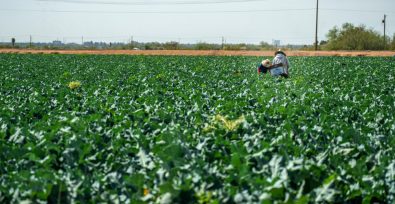Bénédicte Ze endured nearly two years of sexual assault, harassment, grueling 80-hour work weeks, racism, and relentless abuse at the hands of her employer on a farm in Quebec. Her experience is not an isolated case but rather a reflection of Canada’s deeply flawed Temporary Foreign Worker Program (TFWP), which has been described as an inherently exploitative system that enables modern slavery.
“I did not expect to be a slave here”
Ze arrived in Canada from Cameroon in 2016 on a closed work permit, tying her legal status in the country to a single employer. She was promised fair wages and good working conditions to support her children back home, but instead, she found herself trapped in an exploitative cycle of forced labor and coercion.
“I did not expect to be a slave here,” Ze stated in an article by CBC, adding that “an animal had more value than me. I had no rights.”
According to the Toronto Star, upon her arrival, she was told by her recruiter that she had to “be available for sexual services for her employer.”
“What I lived through amounts to enslavement — what I experienced in Canada is inhumane,” Ze said.
“I’ve been debased and devalued,” she said, adding that she knows many like her who have suffered similar exploitation under Canada’s temporary foreign worker (TFW) program.
The TFWP brings thousands of migrant workers to Canada each year to fill employment gaps in agriculture, construction, and healthcare industries. However, the program has long been criticized for failing to protect workers from exploitation. In a new report by Amnesty International, the human rights group labeled the program as a systemic failure that is “inherently exploitative.”
Without permanent status or an open work permit, migrant workers under the TFWP are forced to remain under one employer, leaving them incredibly vulnerable to abuse and exploitation. Speaking out can mean termination, loss of legal status, and deportation—a threat that traps many in precarious situations.
Canada’s reputation vs. reality
The report from Amnesty International is just the latest in a series of investigations into the TFWP. In July 2024, UN special rapporteur Tomoya Obokata visited Canada and called the program a “breeding ground for contemporary forms of slavery” and recommended ending the use of closed work permits.
According to CBC, Amnesty’s report includes research and interviews with 44 migrants from 14 countries living or working in Quebec or Ontario. It documents a range of human rights violations such as wage theft, unsafe working conditions, abuse, race- and gender-based violence.
Ketty Nivyabandi, secretary general for Amnesty International Canada said:
“Canada is relying heavily on the labor of migrant workers to provide essential services.”
“These industries which put food on our table and which keep us healthy … cannot operate on the backs of exploited Black and brown migrant workers. Pretty much every worker that Amnesty interviewed had recounted multiple human rights abuses.
“It needs to change today. It has been ongoing for decades.… It has been documented over and over. There’s no reason why we continue to have closed permits.”
Call for urgent reform
It is essential that the closed work permit system is abolished and migrant workers be given protection, stability, and resources that would allow them to escape abusive and exploitative conditions without fear. Canada’s failure to act despite countless evidence of the program trapping thousands in cycles of exploitation perpetuates a system of modern slavery.
Demand that reforms are enacted immediately and that people are always put before profit.







Freedom United is interested in hearing from our community and welcomes relevant, informed comments, advice, and insights that advance the conversation around our campaigns and advocacy. We value inclusivity and respect within our community. To be approved, your comments should be civil.
Who is the recruiting firms the farmers use, they should be prosecuted as well as the farmers!
I live in the heart of agricultural land here in Southern Ontario, surrounded (literally) by vast tracts of vegetable and fruit fields. I have a simple solution to this issue that you are proclaiming exists. Instead of handing out free money to lazy Canadians that don’t want to work. How putting them to work to fill the 10’s of thousands of jobs that these off shore workers fill each and every year, year after year.
I never would have thought this of Canada. Shocking!!